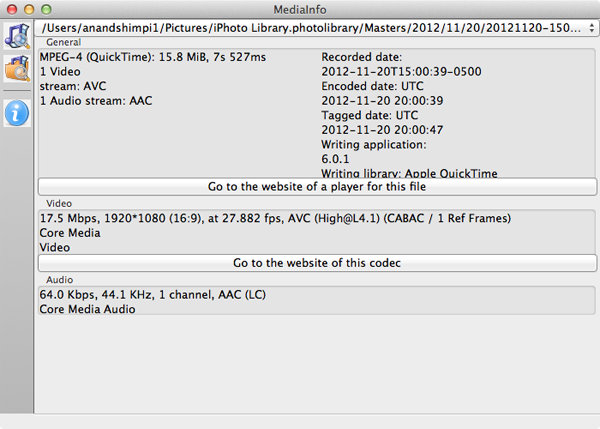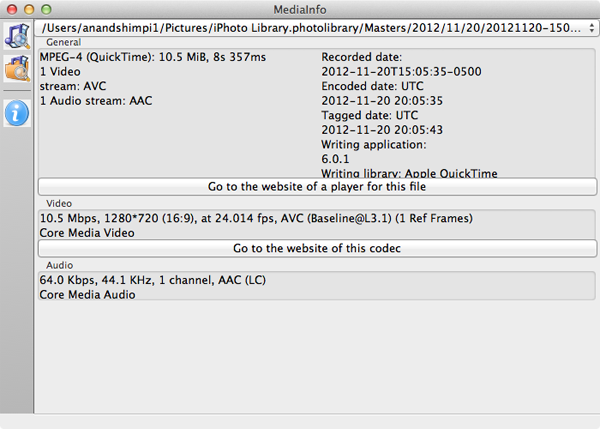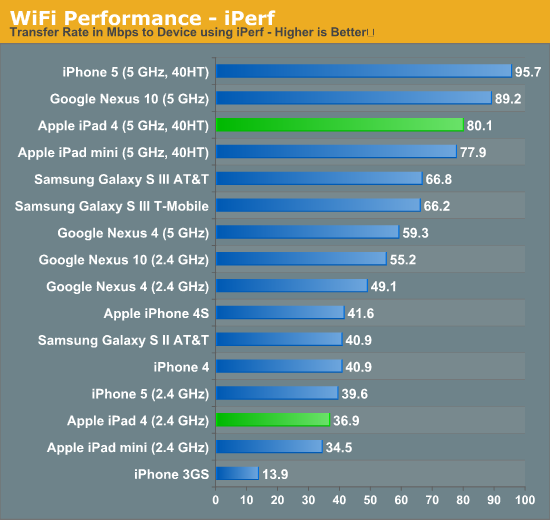iPad 4 (Late 2012) Review
by Anand Lal Shimpi on December 6, 2012 4:40 PM ESTCamera
The iPad 4 features a 5MP rear facing iSight camera and a 1.2MP front facing FaceTime HD camera. The rear camera shoots photos at 2592 x 1936, while the front facing camera shoots photos at 1280 x 960. The aperture and focal length of the rear facing camera haven't changed compared to the 3rd generation iPad.
| Rear Facing Camera Comparison | |||||||
| Sensor | Resolution | Compressed JPEG Size | Aperture | Focal Length | |||
| Apple iPad 4 | 5MP | 2592 x 1936 | 3.4MB | f/2.4 | 4.3mm | ||
| Apple iPad 3 | 5MP | 2592 x 1936 | 3.1MB | f/2.4 | 4.3mm | ||
| Apple iPad 2,4 | 0.7MP | 960 x 720 | 344KB | f/2.4 | 2.0mm | ||
| Apple iPad mini | 5MP | 2592 x 1936 | 3.1MB | f/2.4 | 3.3mm | ||
| Apple iPhone 5 | 8MP | 3264 x 2448 | 3.1MB | f/2.4 | 4.1mm | ||
| Apple iPod Touch 5 | 5MP | 2592 x 1936 | 3.1MB | f/2.4 | 3.3mm | ||
Still image quality out of the rear camera is comparable to the 3rd generation iPad, and clearly better than the iPad mini.

The front facing camera sees the biggest improvement over the iPad 3. The difference is like night and day thanks to the increase in sensor quality and resolution.

| Front Facing Camera Comparison | |||||||
| Sensor | Resolution | Compressed JPEG Size | Aperture | Focal Length | |||
| Apple iPad 4 | 1.2MP | 1280 x 960 | 426KB | f/2.4 | 2.2mm | ||
| Apple iPad 3 | 0.3MP | 640 x 480 | 117KB | f/2.4 | 1.8mm | ||
| Apple iPad 2,4 | 0.3MP | 640 x 480 | 105KB | f/2.4 | 1.8mm | ||
| Apple iPad mini | 1.2MP | 1280 x 960 | 372KB | f/2.4 | 2.2mm | ||
| Apple iPhone 5 | 1.2MP | 1280 x 960 | 400KB | f/2.4 | 2.2mm | ||
| Apple iPod Touch 5 | 1.2MP | 1280 x 960 | 406KB | f/2.4 | 2.2mm | ||
Video
The iPad 4 shoots 1080p video from its rear camera and 720p on the front. Video shot with the rear camera is encoded using H.264 (High Profile) at an average bitrate north of 17Mbps. This puts the encode parameters similar to those of the iPhone 5 and iPad mini. The same is true for the front facing camera.

The front facing camera shoots baseline video at roughly 10.5Mbps:

Video quality is pretty good as well:
WiFi Performance
Like the iPad mini and iPhone 5, the iPad 4 uses Broadcom's BCM4334 WiFi controller. The 4334 supports dual-band 802.11n as well as fallback to 802.11b/g. On 5GHz Apple continues to support 40MHz channels for a maximum PHY rate of 150Mbps. Performance and reception both remain solid:


















113 Comments
View All Comments
seapeople - Thursday, December 6, 2012 - link
How late would this review have had to be for you not to post that comment? In fact, I bet I you typed that comment up the moment you heard about the Ipad release, saved it in a Word document, and patiently waited to post it on the Ipad review that would obviously be coming.The fact that Anand is practically the last tech site on the planet to actually post a review of the new Ipad makes it extremely ironic that you use this action to insinuate that Apple is paying Anand off.
Oh well, it makes sense considering you can't even spell your own name right.
bplewis24 - Thursday, December 6, 2012 - link
It would be great to see the same image/resolution/detail comparisons that you did with the iPad iterations done with the iPad4 vs the Nexus 10 when it's ready.Zink - Thursday, December 6, 2012 - link
I agree. You don't need to do it with every new tablet but it is a good opportunity to do some really in depth head to head iOS vs Android on 10" tablets. We all know this iPad is basically like the last one. What is harder to understand and get data on is completely different products.daar - Thursday, December 6, 2012 - link
Would be nice to see in future reviews, can help get an idea of quality control and calibration, despite what Apple guarantees.Zink - Thursday, December 6, 2012 - link
"I no longer have a 45nm iPad 2 so forgive me for the incomplete dataset here (it's safe to say that the iPad 2 would at least equal the iPad 4 in battery life, if not exceed it)"That doesn't seem safe at all from the numbers you gave. The 45nm iPad 2 only hits 10.1 hours in the 4th gen battery rundown and it is going to take a big drop with the new test. The iPad 3 sees a 12% hit to battery life with the switch to the new smartphone web browsing battery life test. Both tests should use the same screen settings so the increased energy consumption is coming from the 45nm silicon and radio. Screen res and GPU energy consumption does not significant contribute to this decrease in runtime because it is a browser test. The iPad 4 is also able to improve on the newer test despite its high res. Crunching the numbers, the iPad 3 is using 600 mW more to run the new test. The iPad 2 uses a bit older tech inside so I would assume it needs a similar increase in energy, putting the 45nm iPad 2’s performance in the new battery life test at around 8.2 hours, possible worse.
Zink - Thursday, December 6, 2012 - link
I didn't see you had the iPad mini numbers there too. Even it sees a small hit on the new test so the iPad 3 GPU isn't what is hitting battery life the hardest. I would be surprised if the 45nm iPad 2 can do even 8.5 hours, assuming these battery rundown tests are fairly accurate.Velius - Friday, December 7, 2012 - link
Author states, "I've viewed the divide there as a line separating a computing device from an appliance. There's overlap in capabilities, but the overall experience tends to fall along those lines for me."This is a false meme that keeps getting propagated. Android is just as much of a walled garden as iOS, and I'm not talking about the App Store. I mean the functionality of the OS. Android is usually touted as having a lot more customizability than iOS, but this is an illusion. Sure, there are context-sensitive menus which are nice and all, but what you can and cannot do with them are a function of the app maker. It's like having a choice between Coke and Pepsi: you think you have a choice, but your options have been severely constrained. I've used both iOS and Android, the latter mainly to see what all the hype was about (as I am a Linux geek too, though prefer OS X for day-to-day), yet was astounded and shocked when I eventually tried it (on a SGS3 which I am now selling). Where was the full customizability? Where was this amazingly flexible system with tons and tons of features, bells, whistles, and doodads? It's just a copy of iOS! You have apps, and you run one at a time. That's just about it!
As in many other things, Apple leads, and the rest (Google, Samsung, et al.) follow. Everyone forgets that when the iPad was first rumored, speculations were rife with regards to the capabilities of its OS. Many in the tech world wanted a full-blown OS X experience on the iPad (the name wasn't revealed back then of course). Yet they got the "appliance" that iOS on the iPad is. And yet, instead of forging its own path by introducing a full-blown Linux system on a tablet or phone, Google chose to copy and reproduce the appliance aspect of iOS in Android. Only now is Canonical actually moving to port Ubuntu to phones/tablets, well it's really an Android/Ubuntu hybrid but you actually get a full desktop when you dock it. *That* I'm looking forward to.
So Android is just as much of an appliance as iOS, and iOS is just as much of a computing device as Android, if not more so. Yes, I'm talking about the superiority of the App Store - both in terms of quantity and quality. I have never seen a "killer app" in the Play Store that is also not present in the App Store (or with a better version). But ooh boy is it the case the other way around. There are some specialized scientific apps I use for research that just plain don't exist in Android. E.g., X-Windows Phase Plane (XPP) on the iPad:
https://itunes.apple.com/us/app/xpp/id433859546?mt...
Furthermore, of the apps that do get released for both Android and iOS, they generally work better in iOS. These considerations are in fact the main reason why I stick to Apple. The Nexus 10 et al. may be sexier in terms of hardware, but without good software, they are just not as functional.
The level of Android fanboyism on the Internet truly astounds me. The gall, to claim that Android is a "computing device", and iOS an "appliance"! Like it's Cray supercomputer vs. a toaster! How astoundingly ridiculous! Unfortunately, even though this meme is groundless, it will keep getting propagated, ironically mostly due to the tech/geek "cred" that Android fanboys confer onto themselves, failing to realize that they are not the only ones with such cred. Heck, iOS fanboys are also Linux users. (You're looking at one right here.) I wonder, though, how many Android fanboys are *really* computer savvy?
Comments like the ones the author made, and that inspired this post, make me wonder otherwise.
Velius - Friday, December 7, 2012 - link
Sorry about the vitriolic nature of that post. I'd erase and restart if I could.All I wanted to say is that modern tablets are pretty uniform in their capabilities and interfaces, so "computing device" vs "appliance" is a false distinction. Either they are all appliances, or all computing devices. (I see it as both.)
In any case, great review. I will echo what someone else said, that it's a real treat to have a review of the iPad 4 in particular especially as it's not that different than the iPad 3.
Keep up the good work. :)
DeciusStrabo - Friday, December 7, 2012 - link
What exactly are you missing in terms of customization of Android? I mean, you can go and switch out basically everything you want, Kernel, drivers, UI, functionality. You can add any software you want from any point you want (alternative App shops, your own developers, your own Linux/OS X machine). You can add your own codecs, drivers, functions. You can automate basically any part of the system if you so desire. So what are you missing exactly?Sufo - Friday, December 7, 2012 - link
I have to agree with DeciusStrabo. You really aren't getting the most out of your android device if you can't see the distinction between iOS and Android (this coming from someone who thinks both are pretty shitty). There are many many things you can do with Android _devices_ that you can't do with an iphone. Try flashing custom roms for example. You _can_ change pretty much every aspect of an Android device - assuming you can root it. Can you run full OS VMs in iOS? I don't know, but I know you can with Android. In terms of apps, mxplayer is better than any iOS video player, and poweramp is better than any audio player - I'd say these are pretty good wins (at the same time, iOS default audio player shits on the Android default). That's not to say I disagree with you - iOS certainly has the edge often (app-wise), but your conclusions about Android are unfair and not accurate.So yes, a stock manufacturer Android experience is much closer to iOS than many people would like to admit (though it *is still* more of a computing device for sure). However if you know how to leverage the most out of an Android device, then there are certain powerful things it can do than an iOS device simply can't. It's essentially trading killer apps for specific device use cases, which leaves the two pretty equal overall, but with a clear favourite for most people depending on what you want out of your device.